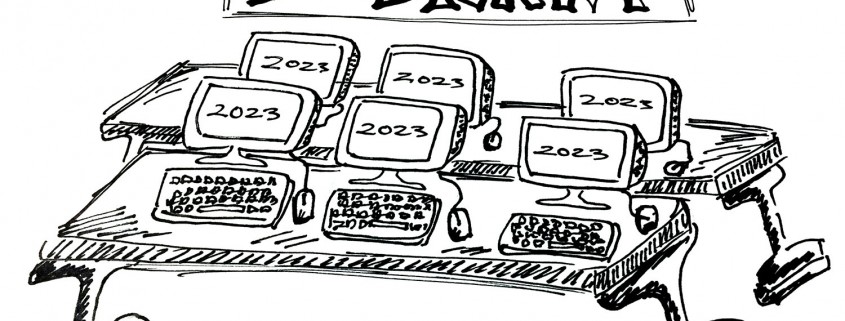It’s time for USC to follow Harvard’s lead in digitizing libraries
Last week, Harvard Law School announced its “Free the Law” project, a program aimed at making one of the world’s largest collections of United States case law entirely free, digitized and publicly accessible. Harvard is partnering with Ravel Law, an online legal search platform, to scan a total of 40,000 books and distribute the documents on the internet by 2017.
This is a momentous victory for those in favor of more widely accessible information. Though the information will not be fully publicly available until 2023, the movement to provide free and comprehensive legal documents is cause enough to celebrate. As Jonathan Zittrain, a professor of law at Harvard, put it: “Libraries were founded as an engine for the democratization of knowledge … The materials in the [Harvard] library’s collection tell a story that goes back to the founding of America, and we’re proud to preserve and share that story.”
But Harvard should not be the only university to make important and historical information accessible. USC has a large volume of European Union documents from as far back as 1951 that are not made public through the University. In addition to these legal documents, USC’s libraries also have an extensive collection of older books that are no longer required by classes, such as the third edition of Erwin Chemerinsky’s Constitutional Law: Principles and Policies. Books like these are only sparingly used in classes, and have often been replaced by newer editions. The University ought to make these outdated versions available online for free, at least for students.
The information in Chemerinsky’s book and others is not useless just because the text has been updated. Yet, most classes require the newest versions of texts, and so old books like Chemerinsky’s are simply using up space in libraries and are not being fully utilized. If these books were made publicly available through USC, or just opened up to student perusal through the library website, the books would be serving their original purpose — the dissemination of knowledge — to a much greater degree.
There should be broader discussion of potential ramifications if wider application of Harvard’s strategy is to be pursued, however. A balance must be maintained between the providers of knowledge and those that stand to benefit from it. And so, rather than depriving publishers, authors and researchers of their livelihoods and income, greater digitization should incorporate a method of securing loyalties, subscriptions or other forms of payment. However, this should be handled by the university — individual users should not be subjected to prices similar to those charged for purchasing or renting the physical book.
Of course, it makes sense for professors to require the most recent information on their course material. That information, however, can also be digitally distributed temporarily to students in the class to be used for the duration of the course, much like checking out a book from a library. Thus, the key course material that is shared between old and new editions can be made permanently available online through the libraries, and newer, specific material can be temporarily distributed.
If the University pursued an initiative like the one outlined, it would not only make information more widely available, but it would also have the benefit of assisting students who cannot afford the newest textbooks for their classes. As the Daily Trojan previously explored the exorbitant cost of college textbooks, an initiative like this could address the concerns of students who are worried about their budgets for books and supplies.
The University should take on more initiatives to circulate knowledge more widely. Even if only students reap the initial benefits, a program like the one started by Harvard Law School can have a long-lasting positive impact on public perception of the University and its reputation. For these reasons, the University should consider following Harvard’s example and making a greater number of documents more available to students and the public.

